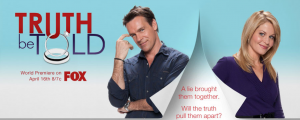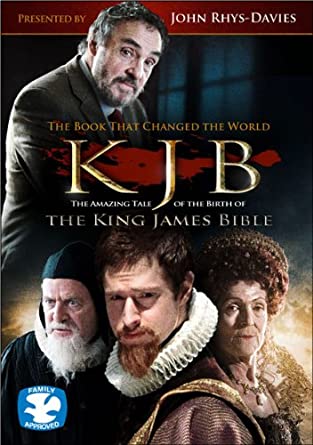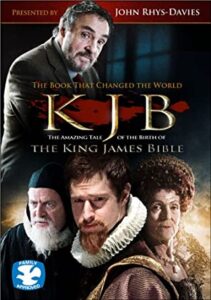Interview: Chad Ahrendt of ‘Reconciliation’ (Part 1)
Posted on May 15, 2011 at 8:00 am
Chad Ahrendt is the writer/director/producer and editor of a new film called “Reconciliation,” about a man named Grant whose impending fatherhood causes him to think about repairing the rift with his gay father. He was kind enough to answer my questions about the film and its messages of love, compassion, and forgiveness.
1. How did the project begin?
In some respects the project began four years ago when I surrendered my life to Christ, but really it began when my parents starting dating in the early 70’s and had me soon after. I didn’t grow up in a Christian home, nor did we talk about God often. In college I was introduced to Christianity, but I didn’t come to know the Lord and fully surrender my life to Him until four years ago. Prior to that I had been working at Columbia Pictures for over a decade on 15 big budget studio films from “Jerry MaGuire,” “As Good As It Gets,” to “Dreamgirls.”
After coming to know the Lord, He started revealing His desire for me to make this movie. People have said this before, but I truly mean He wanted this story to be told – because I had ZERO interest in making this movie knowing what a polarizing topic homosexuality is and the repercussions that might come of it. The movie is loosely based on my own life and the reaction I had when I found out in the late 70’s that my dad was gay. I was teased and bullied at school when a few friends found out about my dad and I remember rumors being spread that I too was gay. I’ve never had same-sex attractions, but I surely didn’t want to be guilty by association so when my mom and I moved away I made sure nobody would know about my dad. Then in the 80’s I started hearing homosexuality wasn’t genetic, but it was a choice and my fear turned to anger because he left my mother and I to pursue his desires, in my mind making the conscious choice I was less important. Often we hear “Christians or God hate(s) homosexuals,” but the irony in my case is it wasn’t until I surrendered my life to the Lord was I finally able to fully love my dad. The Lord was very clear that He wanted me to love and forgive my dad as God has loved and forgiven me of all my messiness…not only that, but as I read and researched all of Scripture the Lord exposed my own sexual brokenness as a “heterosexual.”
After much research I finally sat down and began writing the script, praying daily for the Lord’s supervision over every word.
2. Did you have difficulty getting support for it?
Absolutely. Although the story mainly follows an estranged father and son struggling to overcome the heartbreaking consequences of their past as they seek forgiveness and reconciliation, all everyone could concentrate on was the homosexual aspects in the movie and whether homosexuality is perceived as a sin or not. Studio and faith-based production companies enjoyed the script, but didn’t want to touch the project for very different reasons. Secular executives were more interested in a form of “universalism” and not talking about “sin,” whereas faith-based companies were excited the movie clearly presented the Gospel they had concerns about alienating a portion of their fans who might have varying opinions about homosexuality being a sin or not.
I knew the Lord wanted the movie made which gave me confidence He’d open the right doors at the right time to get the project financed and distributed – and He blew the doors wide open bringing together an amazing cast, crew, locations, and independent financing that allowed us to tell the story He wanted to tell, a story focused on the Gospel and no other agenda. The Lord’s ways are so much better then our ways!
3. Why was it so hard for Grant to forgive his father?
Jeff’s choice to pursue his sexual desires over his family set off a chain of events that would leave lasting repercussions and ultimately break the father/son bond. Divorce, no matter the reason is very difficult for a child to understand. Jeff lied to Grant about the reason for the divorce causing Grant to feel even more betrayed, ultimately losing trust in his father. Jeff’s sexual desires being exposed at Grant’s 10th birthday party, caused Grant to be bullied and teased at school. Grant already felt the consequences emotionally, now he experienced them physically from his peers. What had Grant done to deserve this? He didn’t choose his father and mother, but nevertheless he paid for their choices. Consider all the emotions of abandonment, deceit, embarrassment, shame, confusion, fear, anger, physical abuse and teasing from peers, the era of the 1970’s and one starts to empathize with Grant’s broken and hardened heart. One might even begin to understand, not condone, Grant’s unchecked anger that festered into hatred. Grant’s choices to hate and disown his father were also sinful and led him to deceive others. Grant’s lies and hatred of his dad were confronted when he came to know Christ. As the Lord exposed areas of Grant’s life that needed to be brought to the Cross and repented of, He also softened Grant’s heart by pouring out His unconditional love and forgiveness upon Grant – a Father’s true love that Grant had never known growing up. The hatred and anger were being transformed by God’s Word and the Holy Spirit, but because Grant didn’t come clean to his wife about his dad Grant felt shame and guilt for the way he treated his dad and the lies he told, instead of God’s intention for grace and freedom that comes from repentance. Eventually, the Lord made a way for everything to be worked out for good. Grant really needed to forgive himself and truly understand God’s grace and forgiveness, and once he did he could extend the same forgiveness.
Life is messy and it takes work, sometimes-uncomfortable work, for reconciliation to be possible. Yes, reconciliation will look differently for everyone depending on the wound and situation, but no matter what we are called to forgive as we have been forgiven. Let us never forget the amount of grace, compassion, patience, love and Truth with which the Lord has dealt with each of us.





